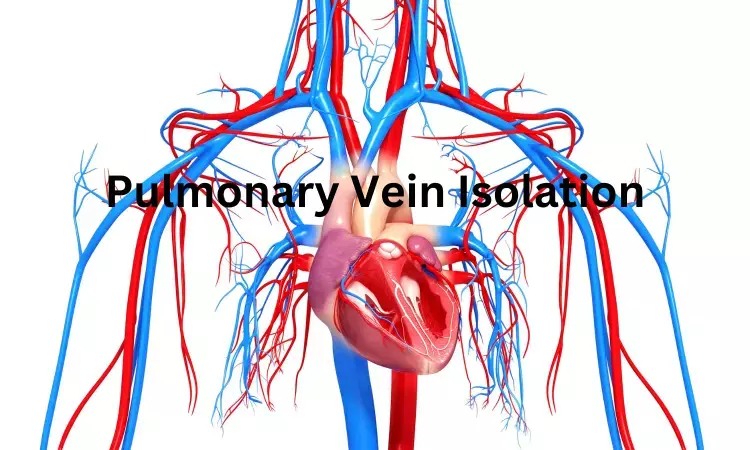- Home
- Medical news & Guidelines
- Anesthesiology
- Cardiology and CTVS
- Critical Care
- Dentistry
- Dermatology
- Diabetes and Endocrinology
- ENT
- Gastroenterology
- Medicine
- Nephrology
- Neurology
- Obstretics-Gynaecology
- Oncology
- Ophthalmology
- Orthopaedics
- Pediatrics-Neonatology
- Psychiatry
- Pulmonology
- Radiology
- Surgery
- Urology
- Laboratory Medicine
- Diet
- Nursing
- Paramedical
- Physiotherapy
- Health news
- Fact Check
- Bone Health Fact Check
- Brain Health Fact Check
- Cancer Related Fact Check
- Child Care Fact Check
- Dental and oral health fact check
- Diabetes and metabolic health fact check
- Diet and Nutrition Fact Check
- Eye and ENT Care Fact Check
- Fitness fact check
- Gut health fact check
- Heart health fact check
- Kidney health fact check
- Medical education fact check
- Men's health fact check
- Respiratory fact check
- Skin and hair care fact check
- Vaccine and Immunization fact check
- Women's health fact check
- AYUSH
- State News
- Andaman and Nicobar Islands
- Andhra Pradesh
- Arunachal Pradesh
- Assam
- Bihar
- Chandigarh
- Chattisgarh
- Dadra and Nagar Haveli
- Daman and Diu
- Delhi
- Goa
- Gujarat
- Haryana
- Himachal Pradesh
- Jammu & Kashmir
- Jharkhand
- Karnataka
- Kerala
- Ladakh
- Lakshadweep
- Madhya Pradesh
- Maharashtra
- Manipur
- Meghalaya
- Mizoram
- Nagaland
- Odisha
- Puducherry
- Punjab
- Rajasthan
- Sikkim
- Tamil Nadu
- Telangana
- Tripura
- Uttar Pradesh
- Uttrakhand
- West Bengal
- Medical Education
- Industry
High-power, short duration radiofrequency ablation may achieve pulmonary vein isolation faster in AF

Pulmonary vein isolation is a common procedure to treat atrial fibrillation (Afib). Atrial fibrillation is an abnormal heart rhythm (arrhythmia) that occurs in the atrium. When left untreated, atrial fibrillation can lead to consequences such as stroke and heart attack.
High-power, short duration (HPSD) radiofrequency ablation (RFA) is a commonly used strategy for pulmonary vein isolation (PVI). A study suggests HPSD is reliable method to achieve pulmonary vein isolation compared to standard power, standard duration RFA but is an increased risk of Asymptomatic Cerebral Emboli (ACE).
A recent study aimed to compare HPSD with standard power, standard duration (SPSD) RFA in patients undergoing PVI. The study is published in JACC: Clinical Electrophysiology.
Researchers included patients with paroxysmal or persistent (<1 year) atrial fibrillation (AF) were randomized to HPSD (50 W) or SPSD (25-30 W) RFA to achieve PVI. Outcomes assessed included time to achieve PVI (primary), left atrial dwell time, total procedure time, first-pass isolation, Pulmonary Vein (PV) reconnection with adenosine, procedure complications including asymptomatic cerebral emboli (ACE), and freedom from atrial arrhythmias.
The key findings of the study are
• A total of Sixty patients (median age 66 years; 75% male) with paroxysmal (57%) or persistent (43%) AF were randomized to HPSD (n = 29) or SPSD (n = 31).
• Median time to achieve PVI was shorter with HPSD vs SPSD (87 minutes vs 126 minutes; P = 0.003), as was left atrial dwell time (157 minutes vs 180 minutes; P = 0.04).
• There were no differences in first-pass isolation (79% vs 76%; P = 0.65) or PV reconnection with adenosine (12% vs 20%; P = 0.26) between groups.
• At 12 months, recurrent atrial arrhythmias occurred less in the HPSD group compared with the SPSD group (n = 3 of 29 [10%] vs n = 11 of 31 [35%]; HR: 0.26; P = 0.027).
• There was a trend toward more ACE with HPSD RFA (40% HPSD vs 17% SPSD; P = 0.053).
Researchers concluded that “In patients undergoing AF ablation, HPSD compared with SPSD RFA results in shorter time to achieve PVI, greater freedom from AF at 12 months, and a trend toward increased ACE.”
Reference: Lee A, Voskoboinik A, Cheung C, et al. A Randomized Trial of High vs Standard Power Radiofrequency Ablation for Pulmonary Vein Isolation. J Am Coll Cardiol EP. 2023 Jul, 9 (7_Part_2) 1038–1047.https://doi.org/10.1016/j.jacep.2022.12.020.
MSc. Neuroscience
Niveditha Subramani a MSc. Neuroscience (Faculty of Medicine) graduate from University of Madras, Chennai. Ambitious in Neuro research having worked in motor diseases and neuron apoptosis is interested in more of new upcoming research and their advancement in field of medicine. She has an engrossed skill towards writing and her roles at Medical dialogue include Sr. Content writer. Her news covers new discoveries and updates in field of medicine. She can be reached at editorial@medicaldialogues.in
Dr Kamal Kant Kohli-MBBS, DTCD- a chest specialist with more than 30 years of practice and a flair for writing clinical articles, Dr Kamal Kant Kohli joined Medical Dialogues as a Chief Editor of Medical News. Besides writing articles, as an editor, he proofreads and verifies all the medical content published on Medical Dialogues including those coming from journals, studies,medical conferences,guidelines etc. Email: drkohli@medicaldialogues.in. Contact no. 011-43720751


